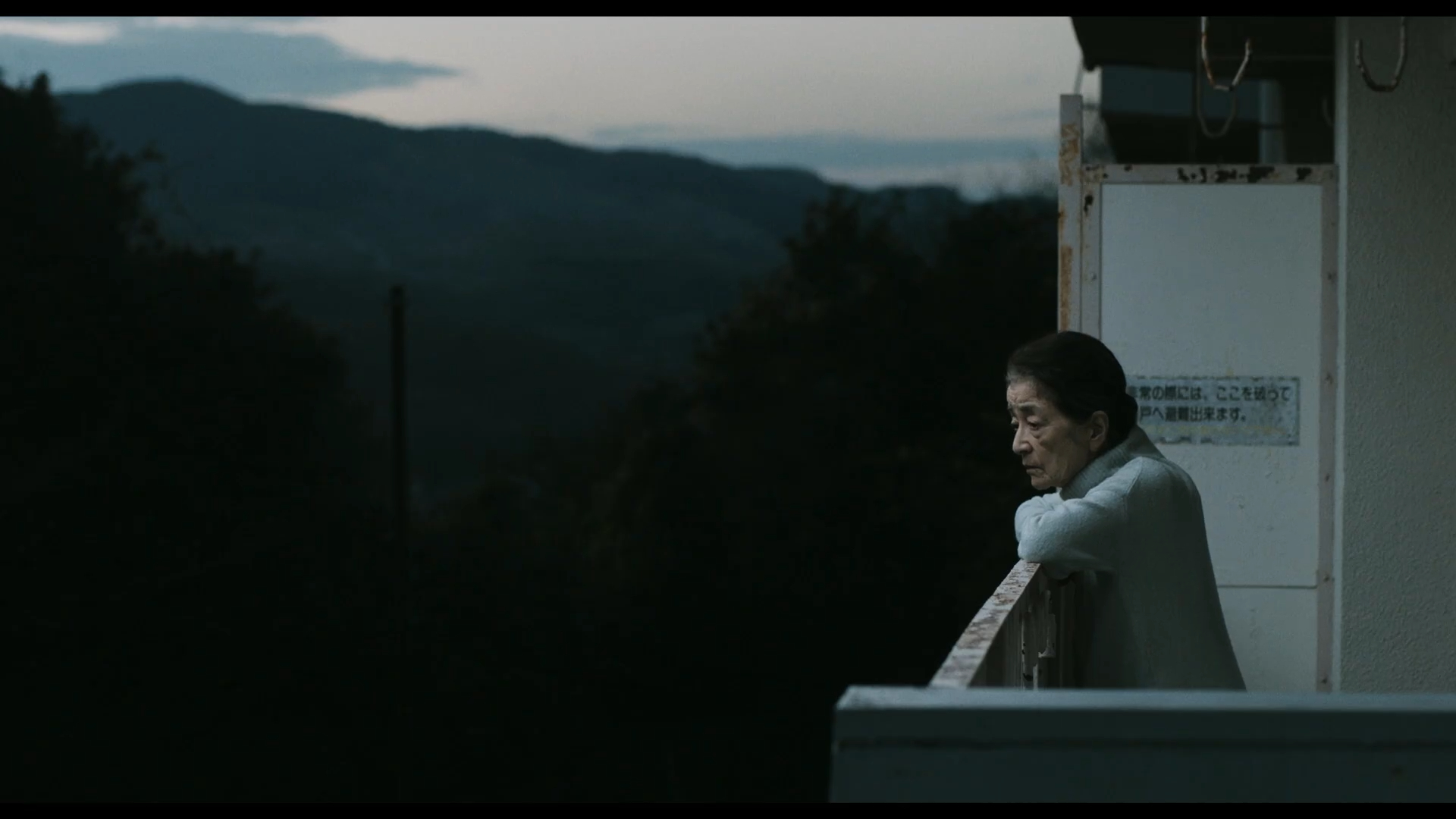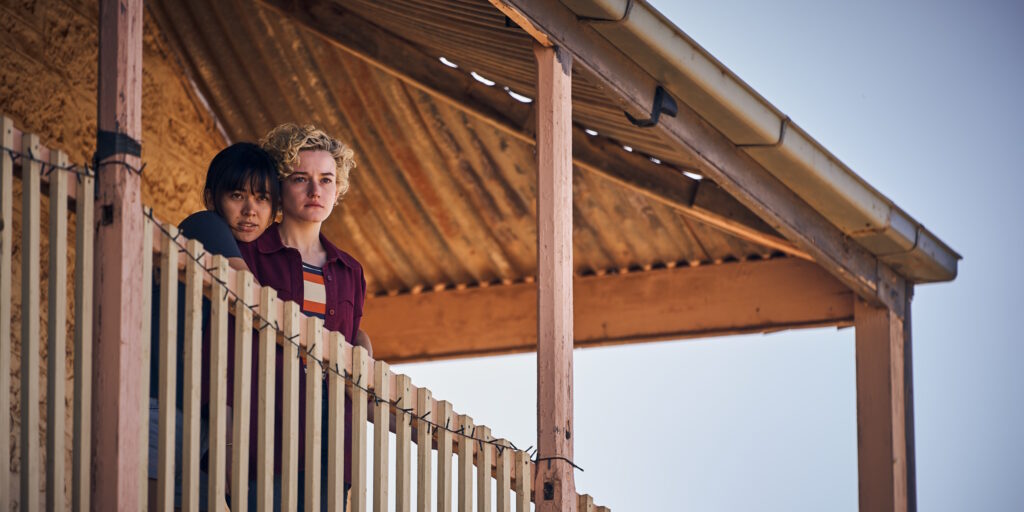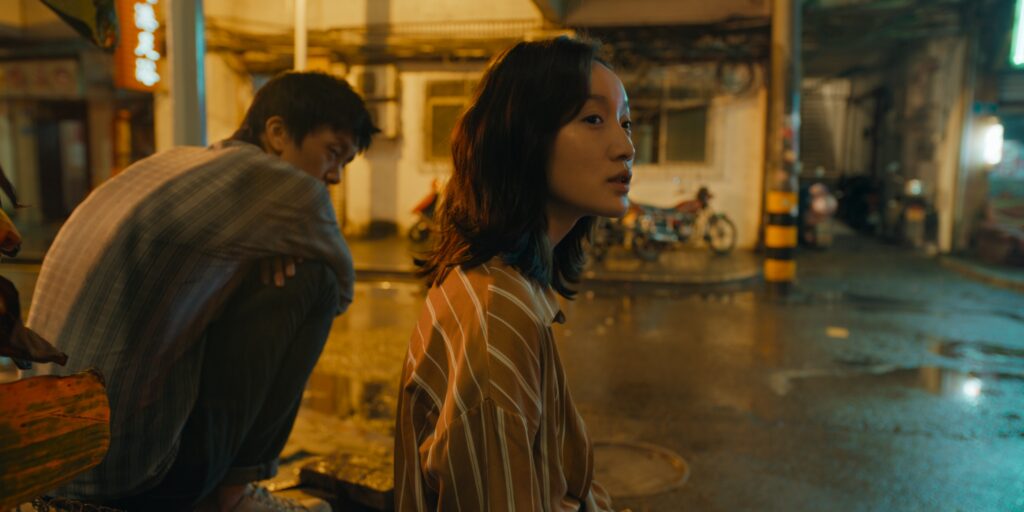Note: This review was written during the 2023 WGA and SAG-AFTRA strikes. Without the labor of the writers and actors currently on strike, the film being covered here wouldn’t exist.
In Chie Hayakawa’s feature debut, Plan 75, Japanese lawmakers institute an unorthodox program to combat the country’s rising population of elderly citizens: government-sanctioned assisted suicide. It comes in response to a rolling boil of tension surrounding the cost, labor, and demands of Japan’s growing cohort of seniors — a so-called blight on society so detested by younger generations that it has provoked hate crimes. It’s a tantalizing question: What’s a person to do when the government encourages them to kill themselves? Hayakawa and co-writer Jason Gray consider an answer through the lives of three loosely connected individuals: Mishi (Chieko Baisho), a 78-year-old hotel laborer; Himoru (Hayato Isomura), a Plan 75 representative; and Maria (Stefanie Arianne), a Filipino immigrant working as a caregiver in a nursing home. The film thus presents, respectively, the target audience of, the spokesperson for, and the accessory to Plan 75.
After a jarring cold open demonstrating one possible motivation for this unprecedented initiative, the film picks up on the first day of Plan 75’s enactment. Hayakawa’s camera observes Mishi — along with her three close friends and fellow septuagenarians — from a distance. They work, eat, and socialize together as they’ve done for years, hardly fazed by the questioning eyes of their younger colleagues. With a job to support her, no family to encumber, and an apartment of her own (with no nursing staff to boot), Mishi hardly typifies the social burden that is used to rationalize Plan 75. Despite exceeding the qualifying age by three years, she keeps her head down and carries on living as if Plan 75 weren’t even a thing.
Himoru and Maria — the former could be half Mishi’s age, the latter may be a quarter — exist on the other end of the equation. He is obliged to deal death as if it were an extended warranty on a new car. She lives and works in a country where the most essential jobs pay the least. Hayakawa and Gray’s script cleverly mirrors the old in the young. After all, they propose, what’s the real difference between working to death for money you’ll never spend and choosing to die as an austerity measure? Although they belong to younger generations, Himoru and Maria’s harsh reality looks a lot like Mishi’s: Choose to die for the good of the nation and a check will be mailed out for practically anything the heart desires. A bit of cash should make that imminent departure a little easier to stomach.
Hayakawa approaches the heavy subject matter quietly. Her direction is cold, distanced, repressed … all tools to make an admittedly improbable concept feel much more believable. Assisted suicide is not a new idea, nor is it frowned on internationally. However, to suggest that a government could one day incentivize such an act seems far-fetched. Yet, by detaching from the characters and their inner struggles, Plan 75 manages to be much more convincing than an inferior, more sentimental film could have been. That’s not to say it’s an emotionless affair, however. One sensation permeates strongly throughout: loneliness. It’s the natural result of a policy as morbid and devaluing as Plan 75, and Hayakawa along with cinematographer Hideho Urata underlines this point with static shots of empty beds, gray skies, and silent streets.
Of the three intertwined lives at the center of the film, Mishi’s is by far the most affecting. There’s a longing to reach out and help the woman, akin to the feeling of seeing an older person struggle to accomplish a basic task like standing up from a chair or using a touchscreen phone. Himoru and Maria are fine enough but ultimately ancillary characters here. Their emotional beats never reach the same heights or depths as Mishi’s, but this has everything to do with their secondary roles and nothing to do with their performances, both of which are deserving of a little more meat on the bone. Even so, Chieko Baisho’s turn stands alone: a noble, delicate embodiment of the gentle geriatrics who would rather be socialized than euthanized.
Plan 75 screens nightly at 7:30 p.m. from Aug. 18 – 20 at the Webster University Film Series.




